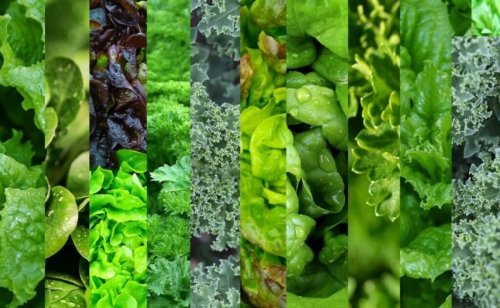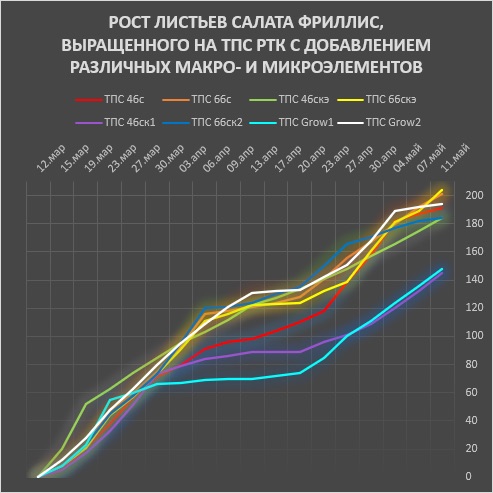
 The rpc Group of Companies, together with the laboratory of the Botanical Garden of the country’s main university, MSU (Moscow State University named after M.V. Lomonosov), conducted a series of studies on growing Frillis lettuce in a peat nutrient substrate with the addition of mineral macro- and micro-fertilizers.
The rpc Group of Companies, together with the laboratory of the Botanical Garden of the country’s main university, MSU (Moscow State University named after M.V. Lomonosov), conducted a series of studies on growing Frillis lettuce in a peat nutrient substrate with the addition of mineral macro- and micro-fertilizers.
The main goal of the research was to identify the effectiveness of using rpc GC substrates on the growth and development of lettuce plants at various stages of development in protected soil conditions, as well as to assess the yield of this crop and identify the most effective TPS formulation.
We compared the results of the growth of Frillis lettuce under the same conditions in 8 different TPS recipes produced by rpc Group. After 30 days the following results were obtained:
1) All grown lettuce samples, regardless of the additive formulation used in the rpc TPS, comply with GOST 33985-2016 (the standard regulates the growth rates of LETTUCE, CURLY ENDIVE, FRESH ENDIVE ESCARIOL) in terms of the average weight of the finished product. According to this standard, the weight of 1 lettuce bush cannot be less than 150 grams.
2) Lettuce samples grown on the basis of TPS rpc with the addition of 1 PGMix and microelements (TPS Recipe 46sk) had a formed compact rosette of leaves, while maintaining a high average net weight of the finished product (174 g), which can be advantageously used when working on HORECA and FMCG markets (Reducing the occupied shelf space, as well as reducing storage and logistics costs, reducing the likelihood of product damage).
3) Although all the recipes showed themselves to be the best, the most noticeable results were achieved by lettuce samples grown on the basis of rpc TPS with the addition of 1.2 PGMix and microelements (TPS Recipe 66ske), namely:
Based on the research results, we can recommend the following TPS recipes to everyone interested in growing salads on an industrial scale:
The resulting lettuce plants significantly exceed the standards and requirements for products sold by retail. What distinguishes the products of rpc Group from competitors. It is worth noting that the Frillis variety was taken as a model sample for approbation and testing of various components in growing technology. The results obtained are comparable to the use of rpc TPS on other varieties of salad crops, as well as on green (parsley, dill, basil, cilantro, celery, etc.), vegetable and flower crops with the same efficiency!
